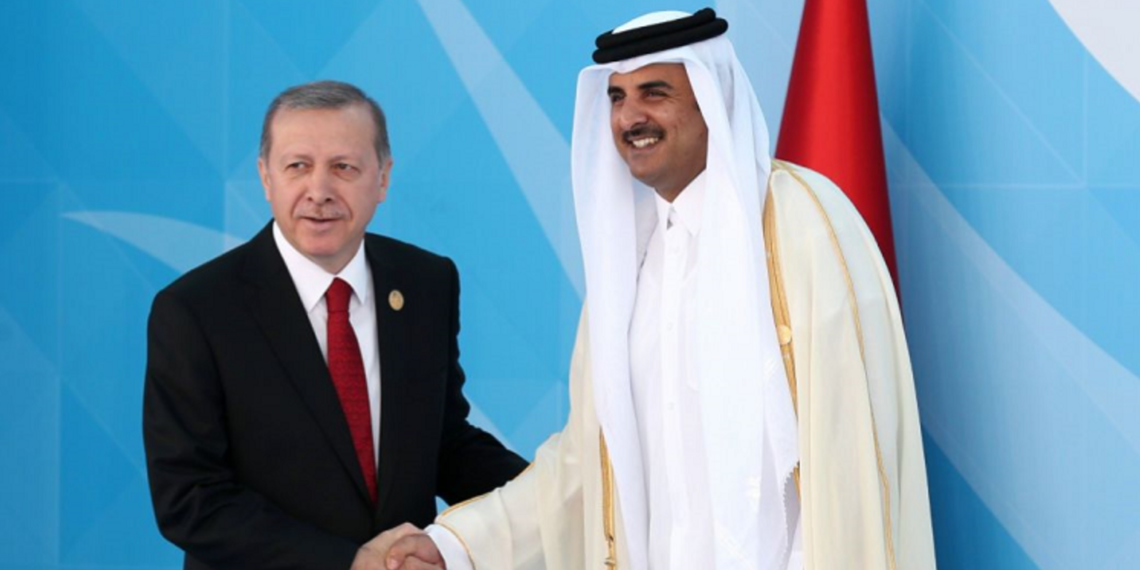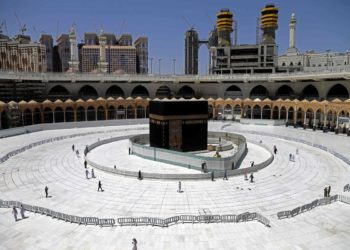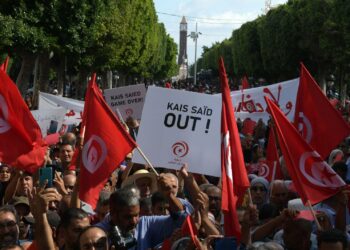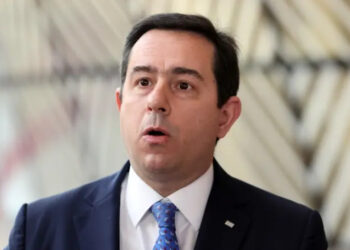When Saudi Arabia and the United Arab Emirates shocked the world by declaring an economic blockade on their tiny neighbor Qatar in the summer of 2017, they probably didn’t expect Turkey to come to Doha’s aid so quickly and forcefully.
After all, Turkey’s trade and investment links with Saudi Arabia and the UAE were much larger than its ties with Qatar. Saudi Arabia and the UAE expected Ankara to be mindful of these interests. However, it is now clear that Turkey’s President Recep Tayyip Erdogan valued its diplomatic and ideological links with Qatar over its economic relations with the other two countries.
To minimize the potential damage to its ties with Saudi Arabia and the UAE, Erdogan could have limited support for Qatar to diplomatic and verbal backing. Instead, he went all-in with full economic and military aid, enabling Qatar to resist the blockade.

This is not to suggest that economic ties with Saudi Arabia and UAE were not important to Turkey. Indeed, in the early weeks of the crisis, Ankara actively tried to mediate to minimize the damage to its relations with Saudi Arabia and the UAE, while at the same time supporting Qatar. Ever since, Turkey has occasionally tried to preserve the economic ties with Riyadh and Abu Dhabi, despite escalating diplomatic tensions.
Now that the Qatar crisis has entered its third year with no solution in sight, it is time to take stock of how Turkey’s support for Doha has affected its economic relations with all three countries and make up the balance: was it worth it?
Turkey’s Economic Ties with Qatar
Qatar unsurprisingly rewarded Ankara for its support, and the volume of bilateral trade and business investments has increased sharply since 2017.
Many Turkish firms have been awarded construction contracts in Qatar, with some replacing the Saudi and UAE firms that had to terminate activities in the country after the blockade. Similarly, Qatar’s investments in all sectors of the Turkish economy have increased.
There is also a steady increase in the amount of Qatari tourists visiting Turkey, although the absolute number is relatively small because of Qatar’s small population of just 2.7 million of which only 12 percent are citizens.
Qatar expanded its imports of Turkish products and boosted investment in the country. But what has been the damage to Turkey’s ties with Saudi Arabia and the UAE? And how has Turkey’s involvement impacted its relations with other Arab states?
Resilience of Economic Relations
While a sharp decline in Turkey’s economic relations with the UAE and Saudi Arabia was expected, 2018 data points to the resilience of some economic ties despite diplomatic tensions.
Ankara’s exports to Saudi Arabia fell by 16 percent in 2017 and 10 percent in 2018, but its imports, on the other hand, rose by at least 10 percent in both years. Turkey’s exports and imports to the UAE both increased sharply in 2017 but fell by large percentages in 2018.
Despite these fluctuations, Saudi Arabia and the UAE continue to be Turkey’s dominant trade partners among the Gulf countries, and even in 2018, they accounted for more than 70 percent of Turkey’s total exports to the region.
Turkey’s business relations with Saudi Arabia and the UAE suffered sizable setbacks, but this could also have been a result of Turkey’s 2018 financial crisis.
Most recent investment data reveals that increased investment by Qatar has offset a large segment of the decline in Saudi and UAE investments. Saudi purchases of real estate units in Turkey rose by 77 percent in 2017 but then fell 19 percent the next year. A similar pattern is visible for real estate purchases by the UAE nationals.
Turkey has traditionally been a popular destination for tourists from the Gulf, and the 2018 devaluation of Turkish lira made it even more attractive. The number of Saudi visitors to Turkey rose in both 2017 and 2018 despite diplomatic tensions and registered a record 747,000 visitors in 2018. A little more than 43,000 UAE tourists visited Turkey in 2018, which is 12 percent less than in 2017 but more than in 2016.
Future Prospects
While it would be expected that as time passes the Qatar crisis and Turkey’s tensions with Saudi Arabia and the UAE might diminish, several developments suggest otherwise.
First of all, there is no indication of a resolution in the Qatar crisis. Second, it appears that the diplomatic tensions and the war of words between Turkish and UAE officials have heated in 2019. Third, in both Saudi Arabia and the UAE, informal campaigns and indirect restrictions against Turkish products have intensified in the past months. In May, for example, Saudi government officials warned citizens against investment in Turkey. They claimed to have received many complaints from Saudi investors about fraud and extortion by Turkish officials.
Similarly, in July, the Saudi media launched a campaign to discourage Saudi tourists from visiting Turkey. They cited multiple warnings by the Saudi embassy in Ankara about increasing crime and theft risks for Saudi tourists.
EXCLUSIVE: Saudi Arabia’s ‘strategic plan’ to take Turkey down
The plan includes steps to
• Undercut Turkish exports,
• Boycott tourism in Turkey,
• Disinvestment
• And minimise Turkish role in Islamic worldBy @davidahearst and me https://t.co/ePJHZ2VUhN
— Ragıp Soylu (@ragipsoylu) August 5, 2019
In the same month, the Saudi government blocked the entry of 80 trucks that were carrying Turkish exports while another cargo of 300 containers carrying perishable agricultural products was delayed for several days. In both cases, the Turkish exporters suffered sizable financial losses. Some analysts believe that these developments are part of a systematic effort by Riyadh to punish Turkey for its hostile posture toward Saudi Arabia in recent years.
Not only there is no indication of de-escalation in the Qatar crisis, but it appears that Saudi Arabia and the UAE are intensifying their efforts to confront Turkey’s influence in the Arab world. They undermined Turkey’s impact in Sudan by supporting the military coup against President Omar al-Bashir in April. They also damaged Turkey’s interests in Libya by their support for the ongoing uprising of General Khalifa Haftar’s forces against the Government of National Accord forces, which had close ties with Turkey.
These developments imply that Turkey’s support for Qatar has not only damaged its ties with Saudi Arabia and the UAE but also motivated these countries to frustrate Turkey’s efforts to increase diplomatic and economic links with other countries throughout the Arab world.
The ongoing tensions have imposed a heavy economic cost on Turkey which goes beyond its direct ties with Riyadh and Abu Dhabi. It is unclear whether President Erdogan took these adverse developments fully into account when he decided to support Qatar.
Disclaimer: The views and opinions expressed here are those of the author and do not necessarily reflect the editorial position of The Globe Post.





















